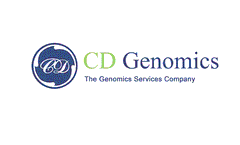Cancer Associated Cells Articles & Analysis: Older
233 articles found
Gene editing has emerged as a transformative tool in the field of biomedical science, with significant implications for the treatment of various diseases. The primary focus is on harnessing this technology for modifying primary T cells, a type of white blood cell crucial for the immune response. This approach has opened new avenues for immunotherapy, providing hope for treating conditions like ...
Alfa Cytology has unveiled new services focused on therapeutic antibody development for bladder cancer research.Alfa Cytology, a prominent cancer research services supplier based in New York, proudly announces the launch of its comprehensive services for bladder cancer therapeutic antibody development. This initiative represents a critical advancement in pursuing effective bladder cancer ...
Breast cancer remains one of the most prevalent malignancies affecting women worldwide, necessitating innovative approaches for effective treatment and research. Among the most promising strategies in this endeavor are the use of tumor models for breast cancer and the development of customized antibody-drug conjugates (ADCs). These advancements not only enhance our understanding of the disease ...
Introduction Microarray printing technology has revolutionized the field of genomics and proteomics, and its application in glycobiology is no exception. Glycobiology, the study of carbohydrates and their biological functions, relies heavily on the ability to analyze large-scale carbohydrate interactions. Microarray printing in glycobiology enables the precise and high-throughput analysis of ...
Reporter stable cell lines are invaluable tools in molecular biology and biochemistry. By integrating a reporter gene into the genome of a cell, researchers can create a stable cell line that emits a measurable signal in response to specific stimuli or conditions. This technology has revolutionized various fields, including drug discovery, gene expression studies, and cellular signaling research. ...
MicroRNAs (miRNAs) are small, non-coding RNA molecules that play a crucial role in the regulation of gene expression. Their ability to modulate various biological processes makes them significant players in the field of molecular biology and medicine. Among the various tools utilized in research and therapeutic applications, miRNA mimics have emerged as powerful instruments for manipulating and ...
Imagine you're a scientist, tasked with the challenge of rapidly producing large quantities of high-quality messenger RNA (mRNA) for use in cutting-edge medical treatments. Where do you even start? Well, my friend, the answer lies in the unsung heroes of the biological world: enzymes. Let me tell you a story about how these remarkable protein catalysts are transforming the future of mRNA ...
Cancer is a worldwide disease and one of the leading causes of morbidity and mortality today. Traditionally, mouse models have been used for research as in vivo model organisms. However, the zebrafish (Danio rerio), also known as zebrafish, has emerged as an important new cancer model due to its small size, brood weight, and rapid maturation time, complements models that can traditionally be ...
Precision-Cut Lung Slices (PCLS) have emerged as a innovative ex vivo model that allows researchers to explore deep into lung physiology, disease mechanisms, and pharmacological responses. By offering a unique combination of biological complexity and controlled experimental conditions, PCLS serve as a critical bridge between the limitations of traditional in vitro cell cultures and the ...
Gene delivery is a therapeutic strategy that’s revolutionizing biotechnology and pharmaceuticals. It involves the delivery of new genetic molecules into target cells to treat diseases. This technology has the implicit to revise the treatment of inherited genetic disorders, cancer and other intractable driseases. Scientists are using a variety of gene delivery strategies to insert new ...
Discover how matched tumor-normal sequencing can help clinical researchers detect the somatic origin of variants with certainty. In the era of precision oncology, it has become increasingly common for patients diagnosed with cancer to undergo tumor sequencing. Identifying the mutations that make up a tumor’s genomic landscape can help guide selection of targeted therapies and inform ...
When a ribosome is affixed to the polypeptide (protein) it is making, the ribosome-nascent chain complex (RNC) is the compilation of molecules that make up the ribosome. One of several methods can be used to halt the synthesis of the nascent polypeptide. RNCs are made and purified in labs to study the dynamics, biochemistry, folding, and interactions that the ribosome and proteins undergoing ...
Understanding Clonality Analysis Clonality refers to the origin of a cell population from a single 'parent' or progenitor cell through asexual reproduction or division. This concept is vital in cancer studies as it helps track the development of tumor cells from a single mutated cell. Clonality analysis is thus essential in understanding the evolution and the spread of cancerous cells in a ...
As a biology researcher, staying at the cutting edge of technology is crucial to advancing research in the field. The emergence of chimeric antigen receptor T-cell (CAR-T) therapy has revolutionized the treatment of certain cancers, providing a promising targeted approach to eliminate cancer cells. However, the monitoring and detection of CAR-T cells in vivo remain a challenge in the evaluation ...
Glycolysis or oxidative phosphorylation? Energy production is a cellular response to the demand for energy. Therefore, cellular ATP production varies depending on the state of the cell and the surrounding environment. Currently, cells rely on two main pathways, glycolysis and oxidative phosphorylation (OXPHOS), to produce ATP. The proportion of these two energy-producing pathways in cellular ...
They are generally proteins or polysaccharides found on the surface of pathogens, such as viruses, bacteria, or cancer cells. In the environment of cancer, antigens may be specific to tumor cells and are known as tumor-specific antigens (TSAs) or tumor-associated antigens (TAAs). Antibodies, also known as ...
Antibody-drug conjugates (ADCs) are a new class of drugs that combine the advantages of both antibodies and small molecule toxins. Compared with traditional cytotoxins, ADCs have the advantages of strong targeting, less toxic side effects, etc. They can accurately target tumor cells, reduce side effects, and improve the therapeutic effect.ADC drugs are mainly composed of monoclonal antibodies, ...
Cell Analysis for Brain Tumors Cell analysis, particularly at the single-cell level, provides deep insights into the cellular heterogeneity within brain tumors. ...
Antibody-drug conjugates (ADCs) represent a groundbreaking class of therapeutics that combine the specificity of monoclonal antibodies (mAbs) with the potent cytotoxic effects of small-molecule drugs. This synergistic approach allows for targeted delivery of the cytotoxic agent to cancer cells while sparing healthy tissues, thereby reducing side effects and enhancing therapeutic efficacy. ADC ...
The T cell antigen receptor (TCR) is a characteristic marker of T cells, playing a crucial role in the immune system. Each T cell typically expresses a specific TCR, which has a unique structure and sequence that can recognize different antigens, including bacteria, viruses, tumor cells, and other pathogens. Once the TCR binds to the antigen, the T cell initiates an immune response, generating ...













